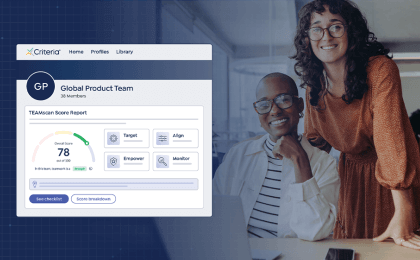A Forbes article named Employee Experience (EX) as a new competitive frontier and a growing priority for many businesses. The logic behind employee experience is that investing in every element in your employee’s careers is an investment in the organization at large. Employee experience management has many long-lasting benefits, including improved employee satisfaction, productivity, retention, and sustainable company growth.
But employee experience goes beyond where an employee sits and what snacks are offered in the break room. So what exactly does employee experience look like?
Denise Lee Yon, best-selling author of The Seven Brand-Building Principles That Separate the Best from the Rest, put it best when she stated:
“EX is the sum of everything an employee experiences throughout his or her connection to the organization — every employee interaction, from the first contact as a potential recruit to the last interaction after the end of employment.”
For remote employees, COVID-19 has completely altered our daily work routine. Gone are the days of entering our office and having our coworkers in the same space to interact and build relationships with. Instead, our workday is entirely remote, drastically upending our work and challenging companies to provide a quality employee experience.
So how can your organization provide a positive employee experience during COVID-19? Below are some tips to consider:
Prioritize Employee Well-being
Prioritizing your team’s well-being is very critical now, as the COVID-19 pandemic can be presenting new stressors to their work experience. One way to start prioritizing employee well-being is by understanding their needs and general attitudes towards the company, including how these have changed or are changing. Below are some questions to consider:
Are employees showing signs of burnout?
Would your employees benefit from more flexible work arrangements?
Is your workplace inclusive and diverse?
What new technology can make your employee’s work less stressful?
What perks can improve your employees’ work-life balance?
A foundational tenet of employee experience is making employees feel comfortable and valued. Addressing their basic needs, such as their overall well-being, can show employees that they are cared for and can improve their engagement with your company’s culture, ideas, and work.
Gauge Employee Experience with Pulse Surveys
Pulse surveys can be an effective tool to gauge your team’s attitudes and pinpoint concerns to improve their experience. Many teams gave gone remote for the first time ever, and this can present new challenges along the way. For example, some employees can be developing burnout symptoms after working remotely for some time. Others may start a new group project and stumble upon communication or technology blocks that make their work more stressful.
Pulse surveys allow you to recognize concerns like these and move forward to addressing them. They also provide metrics for analyzing employee experience ratings over time.
Be Creative and Flexible
Remote work has presented a variety of concerns that may challenge an employee’s experience with their company. Some employees may feel stagnant in their careers and underworked, while others may feel overworked and stressed out. Some may readily embrace technology, while others are struggling with it.
Situations like these require leadership to get creative and find flexible ideas that work for all. At the core of effective employee experience management is understanding and accommodating to your team’s unique needs in a way that serves everyone.
Celebrate Employee Success
For many employees, working remotely can sometimes make it harder to feel appreciated. Adjusting to new circumstances and working away from the rest of the team can be lonely and removes opportunities for congratulations that come with working in-person.
Making space to recognize the resiliency and diligence of your team members can go a long way to making them feel valued. Highlighting key employees via email and team meetings can serve as ongoing reminders that they are valued. Beyond acknowledgment, providing opportunities for promotion and growth and introducing new perks that are tailored to their unique needs can make for an overall superb employee experience.





